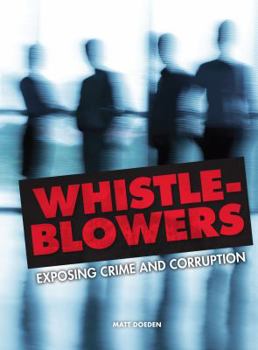Whistle-Blowers: Exposing Crime and Corruption
Sex abuse. Government spying on civilians. Lying under oath. These aren't the makings for crime novels--they're real-life stories uncovered by whistle-blowers with knowledge of deep, dark secrets. In one headline-grabbing case, Edward Snowden, an information technology specialist, revealed unauthorized US government surveillance around the globe. In another, Kathryn Bolkovac, a United Nations International Police Force monitor, went public with the involvement of UN peacekeeping forces in sex trafficking in war-torn Bosnia. In the 1990s, Jeffrey Wigand, corporate vice president at cigarette manufacturer Brown & Williamson, went public with a report of the ways in which Big Tobacco was lying about the health risks of smoking. In earlier decades, a whistle-blower known only as Deep Throat helped Washington Post reporters track down a plot to bring down the Democratic Party during a presidential election season--a cover-up that went straight to the White House.
What drives whistle-blowers to go public with what they know? Is it ethical to breach confidentiality? What laws protect a whistle-blower? And what about the shattered lives that lie in the wake of exposing crime and corruption? Follow the complex stories behind intricate webs of deceit. Listen to whistle-blowers explain their motives. Then decide for yourself if it's worth it to blow the whistle on crime and corruption.
Related Subjects
Teen & Young Adult




